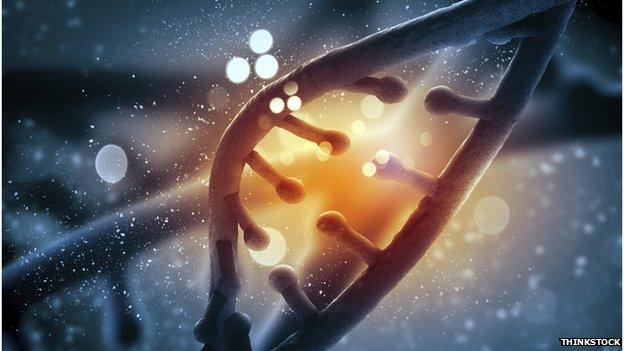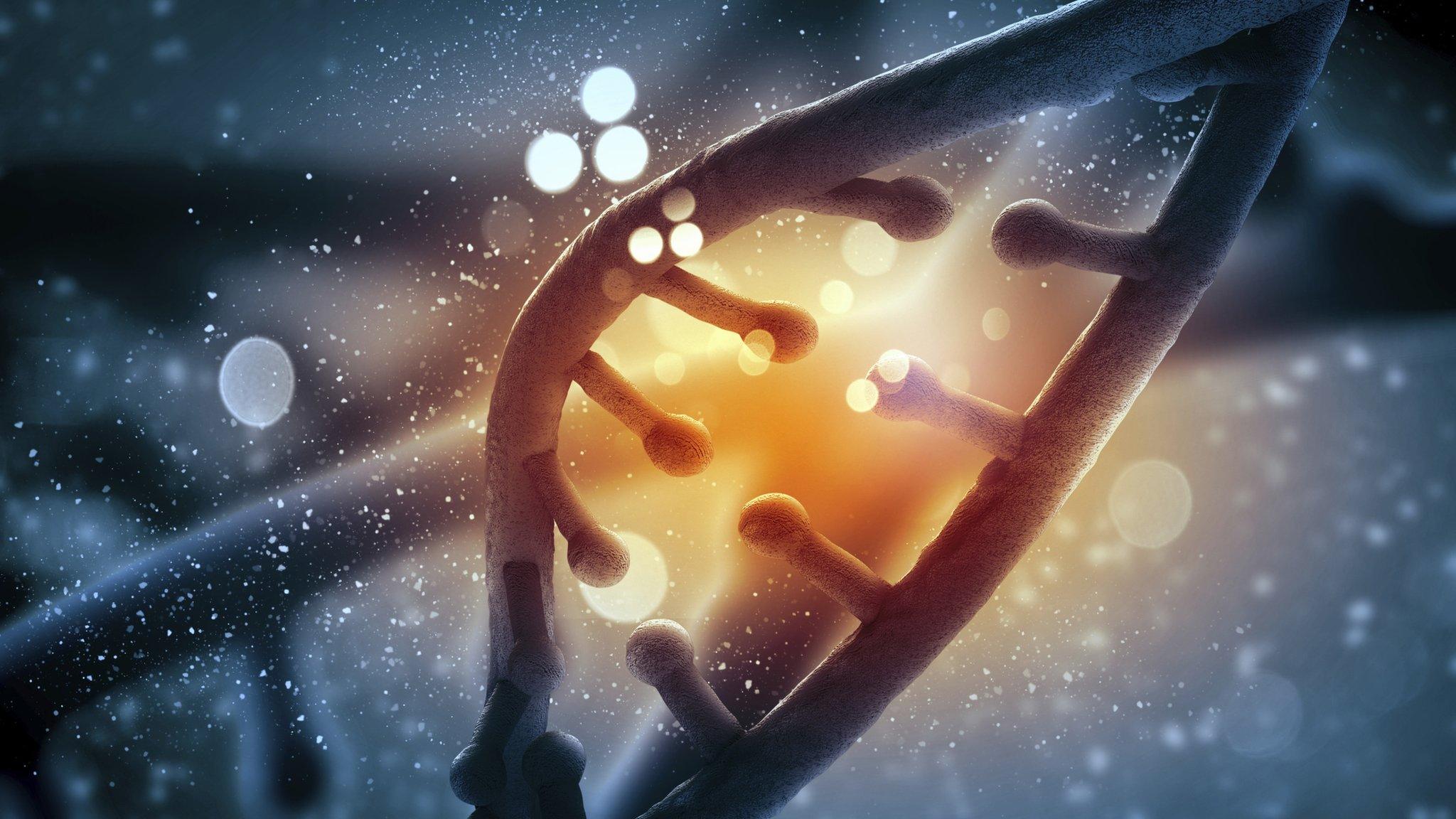DNA of 'an entire nation' assessed
- Published

The study was conducted in Iceland
The genetic code of "an entire nation" has effectively been deduced, say researchers in Iceland.
The feat was performed by combining DNA data with family trees.
The team say they could now find every woman at high-risk of breast cancer "at the touch of a button" and it would be "criminal" not to use the information.
The reports, published in the journal Nature Genetics, external, used the data to make a suite of discoveries including the age of the last common ancestor of men.
DNA is passed from one generation to the next. If you knew everything about the DNA of a child and their grandparents, you could figure out a lot about about the DNA of the parents too.
The deCODE genetics, external team has taken the whole genome sequence of 10,000 people and combined it with nation-wide family trees.
"By using these tricks we can predict, with substantial accuracy, the genome of the entire nation," the chief executive of deCODE, Dr Kari Stefansson told the BBC News website.
Medicine
Mutations in the BRCA genes lead to a much higher lifetime risk of cancer and led the Hollywood actress Angelina Jolie to have her breasts and ovaries removed.

Jolie carried a high risk of developing breast and ovarian cancer
Dr Stefansson argued: "We could, in Iceland, at the push of a button find all women who carry mutations in the BRCA2 gene.
"This risk could basically be nullified by preventative mastectomies and ovariectomies. It would be criminal not to take advantage of it and I am convinced that my fellow countrymen will begin to use it pretty soon."
The data is all anonymous at the moment. Using such data in medicine would raise ethical issues, including identifying deadly disease genes in people who never volunteered their own DNA for study.
Dr Stefansson says there is a lot of debate still to come "but I'm just an old-fashioned physician, my gut instinct is simply to go to these people and warn them".
He is already in discussions with the Icelandic healthcare system.
Elegant
The 100,000 genomes project in England and President Obama's Precision Medicine Initiative both aim to use such genetic information to revolutionise medicine.
Professor Mark Caulfield, the chief scientist at Genomics England, said the studies were "very interesting" and "very elegant".
He told the BBC: "The team in Iceland is to be congratulated as it has continued, over many years, to contribute to an understanding of the genetic information of disease by looking at the level of the population."
He said the progress being made around the world showed: "We are on the cusp on the application of transformative genomic medicine at scale"
However, he cautioned that there were many types of BRCA2 mutation and it was important to be certain they were relevant before informing women.

Common dad
The project made a series of other discoveries including a new gene linked to Alzheimer's disease.
The team has calculated a new estimate for the last common ancestor of all men by looking at the rate of mutation in the male Y-chromosome.
They believe the last common ancestor was 239,000 years ago - down from a previous estimate of 308,000 years ago.
They discovered that in Iceland that 8% of the population is missing all copies of a gene.
This could be harmful, beneficial or have no impact at all. The Icelandic group is starting a study to assess the health of these people.
Dr Susan Wallace, who worked with the Nuffield Council of Bioethics on a report on the use of biomedical data, external, said: "It sounds like a very exciting study and could bring health benefits to people.
"The concerns are that the data is going to be made public, anonymity technically promises protection, but you can be re-identified in datasets.
"There are also concerns of commercial interests in the use of these databases, so there are a lot of concerns that need to be addressed.
"There needs to be more engagement I think."
- Published24 March 2015

- Published22 December 2014
